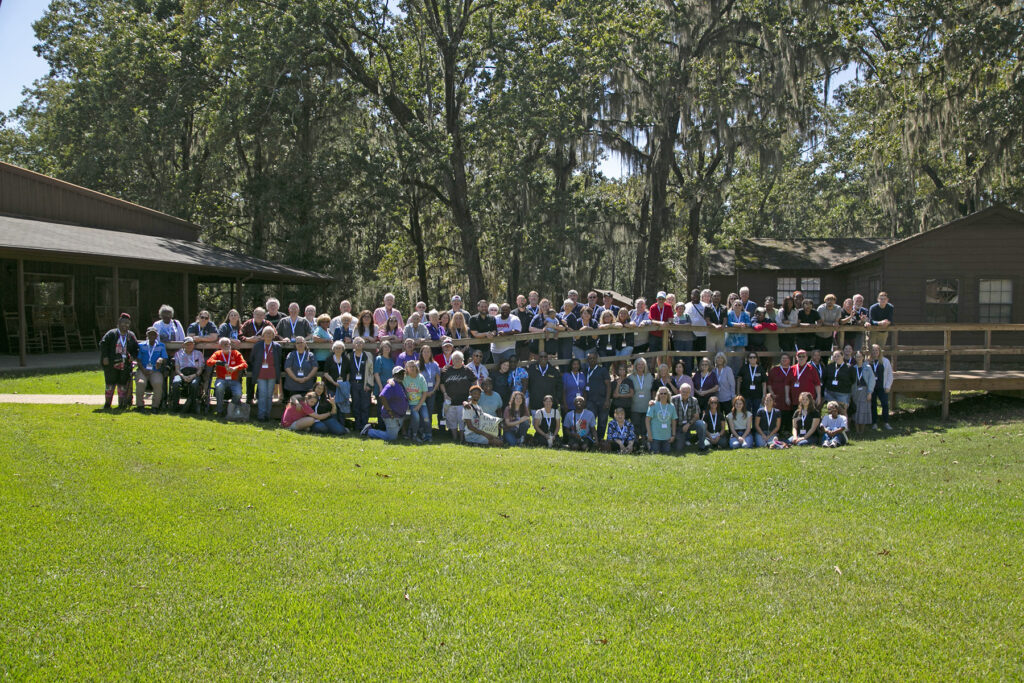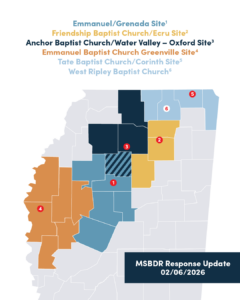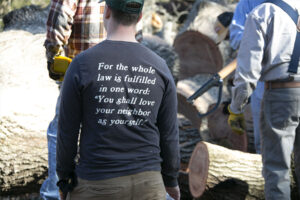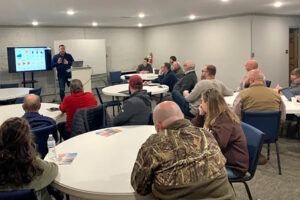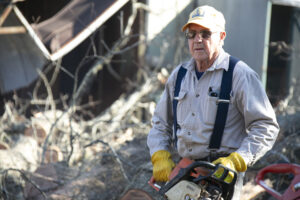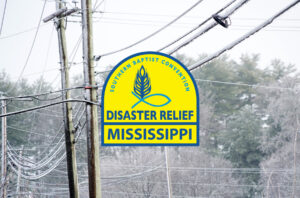By Megan Young
Associate Editor
“We need full-time Deaf pastors,” said Ashton Luff. “We are the third most unreached people in the world. What are we doing?”
The urgency to reach the Deaf community with the gospel is a top priority for Luff, Deaf ministry pastor at Community Bible Church in San Antonio, Texas, and guest speaker at the Mississippi Baptist Conference of the Deaf (MBCD), held Sept. 26-28 at Garaywa Camp and Conference Center.
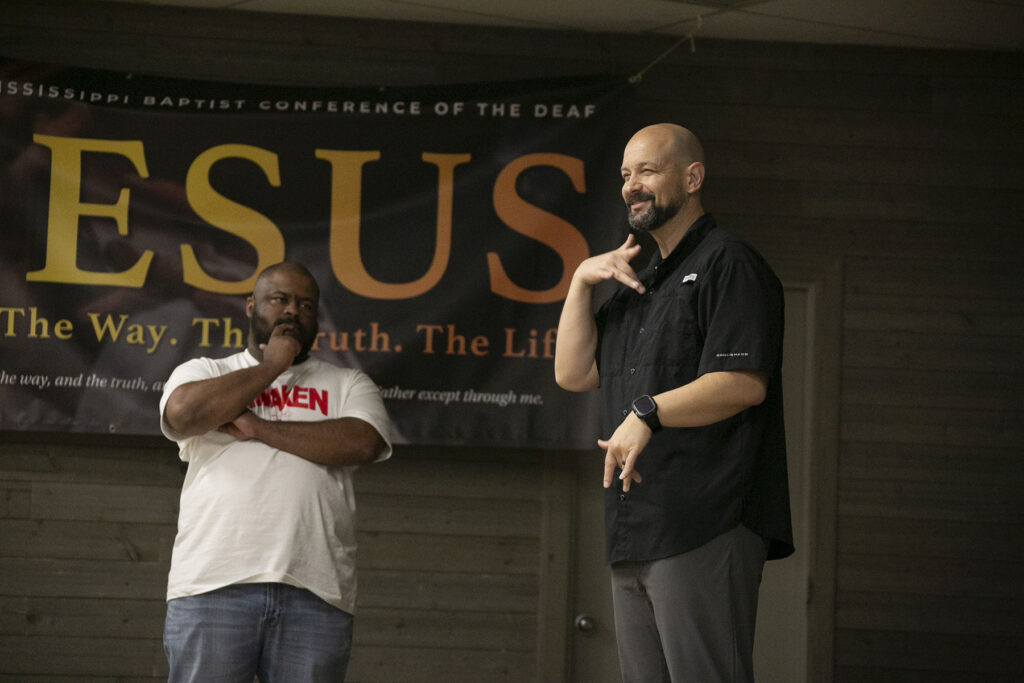
Deaf since age 3, Luff knows firsthand the power of the gospel to change a life. Growing up in Ohio, bullied and without access to American Sign Language (ASL), Luff often felt worthless and angry. He did not even know other deaf people existed until a deaf young man came to his door when he was 17 years old and invited him to a Deaf church.
Through the patience of that young man, Luff not only learned ASL but was opened up to the wider world of the Deaf community. He later accepted Christ at a Deaf camp the following year.
Place of belonging
Finding a place of belonging is essential for the deaf. That is what the MBCD aims to provide — opportunities for the Deaf community to hear the gospel, worship, fellowship and network. This year, 115 people attended the annual weekend conference, including deaf attendees, interpreters and students from Hinds Community College in deaf classes.
“Many deaf do not get a lot of love from their family or know God’s Word,” said Teresa Burns, MBCD Vice President. “Many deaf are isolated. They’re alone, no communication. This is a good time for all of us to come together as one body, one body of Christ.”
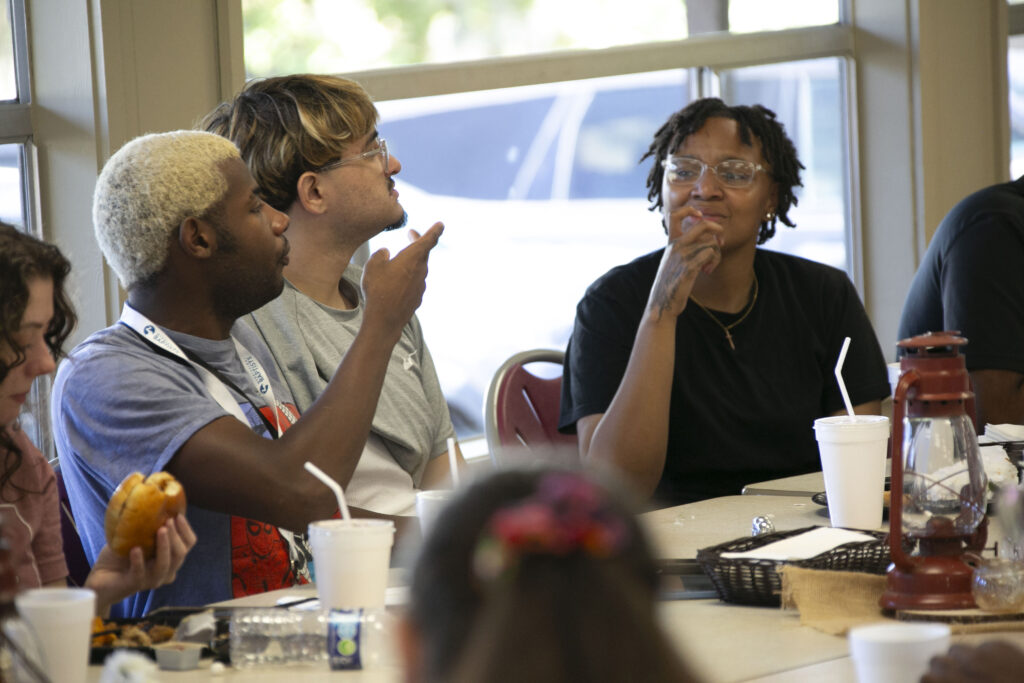
Burns recounted how isolating it was for her and her husband to attend a hearing church before they found one with a Deaf ministry. Though she can read lips, her husband cannot. Unable to understand what was being said, he felt like he didn’t belong.
“I was frustrated, struggling,” said Burns. “My husband wanted to join, but there was not an interpreter and no full accessibility for us.”
Margo Buisson, a hearing person and MBCD interpreter coordinator, encounters this situation often. “Without an interpreter, they’re not getting anything from that experience except frustration,” said Buisson. “And we want the opposite for the Deaf community. We want them to be able to take in God’s Word, enjoy that presence with God. And that’s our responsibility as interpreters.”
A deaf interpreter at Grace Temple Church in Hattiesburg with more than 40 years of experience, Buisson takes her calling as an interpreter seriously.
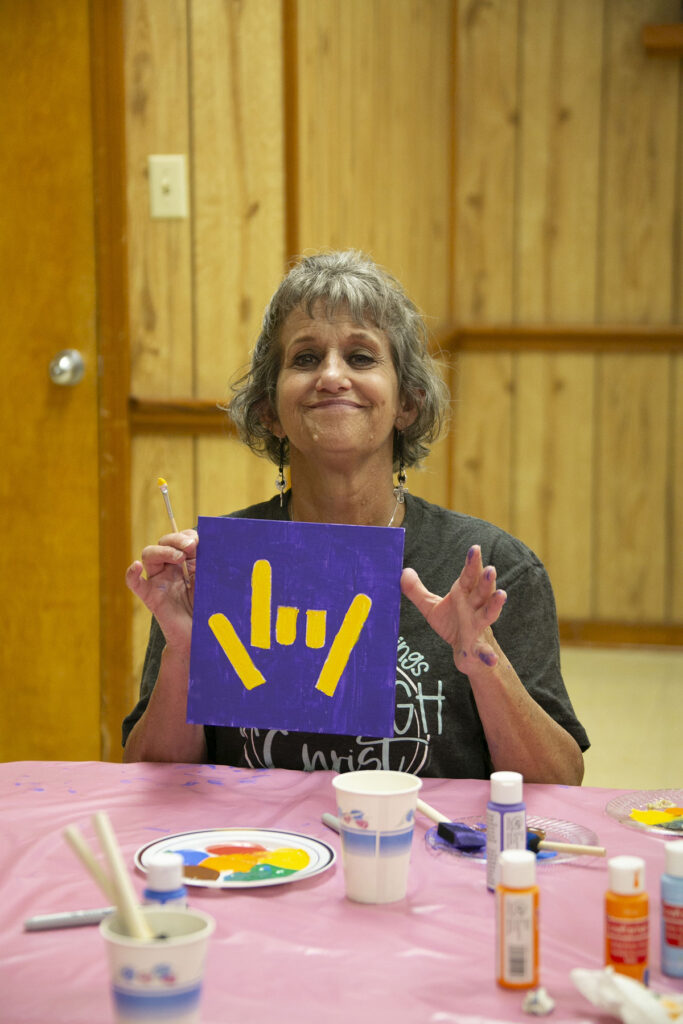
“Interpreters need to understand that it is such a great responsibility to take God’s Word and be able to offer it in a language that the Deaf community can understand,” said Buisson. “The Bible does talk about, you know, hearing the Word of God. Well, they can’t hear it, but they can take it in. It’s just another language. And I know for a certainty that God knows sign language. But if there’s nobody there to offer it, then they have no access.”
According to the National Deaf Center, 3.3% of Mississippians ages 25 to 64 are deaf or hard of hearing. There are currently no Deaf churches in the state. With only 25 Mississippi Baptist Convention Board churches that have some type of Deaf ministry, many of the state’s deaf residents have nowhere to attend church.
“Are we stopping the Gospel or are we spreading the Gospel?” Luff asked. “My heart breaks seeing people die every day not knowing Jesus. We gotta do something. We gotta move. Please don’t stop and just sit and say, ‘Not my problem.’ It’s Kingdom — everybody needs to work together.”
Hopeful future
MBCD leadership is hopeful for the future of Deaf ministry in the state. As the annual conference continues to grow, so does interest in planting a Deaf church.
“We come here in full American Sign Language, our heart language. We learn from each other, encourage each other,” said Burns. “I pray and I hope that more salvations will happen, and that in the future, that we will have more deaf leaders, a deaf pastor.”
Hearing churches with interpreters are invaluable to the Deaf community, but the importance of a fully deaf church cannot be underestimated.
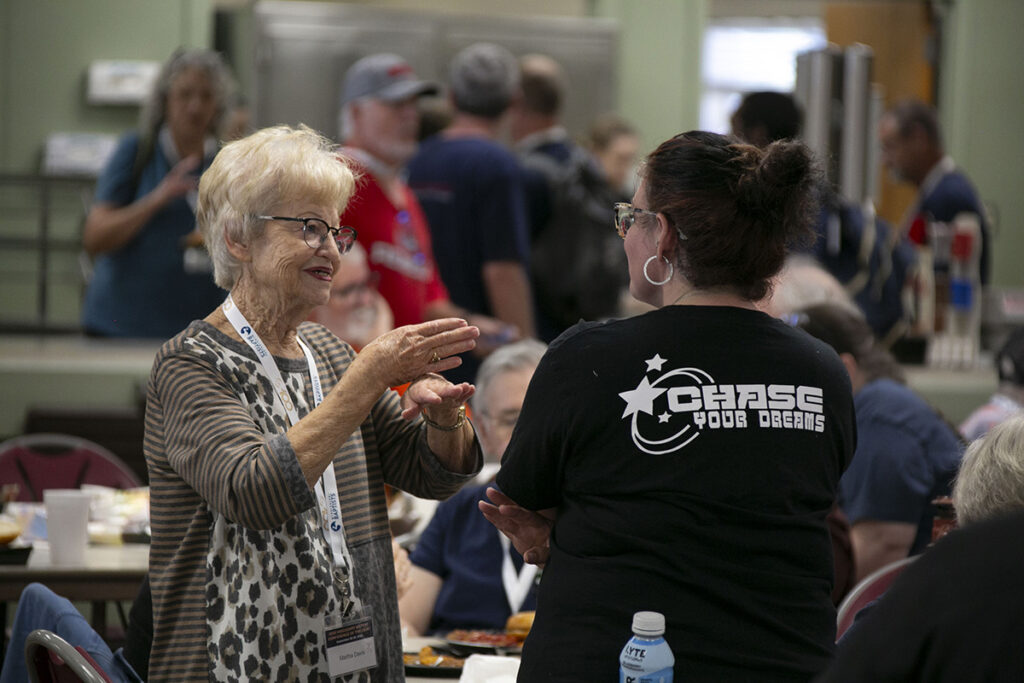
“Deaf church is so different because you can really get into God’s Word more with the socialization that is there, the support, the activities — just the kind of environment and the relationships that you can develop,” said James Rushing, a deaf Garaywa employee. “We’re trying to work on that. Find a deaf preacher or plant a church. But it’s a struggle. It’s been a struggle for many years. So right now, we’re still just praying that one day, finally, we’ll have a Deaf church.”
As they wait for that prayer to be answered, Mississippi’s deaf residents know they can always find a place of belonging at the annual conference.
“It’s just such an amazing feeling when someone comes here to the Mississippi Baptist Conference of the Deaf and they’re here from Friday, Saturday to Sunday,” said Burns. “They’re like, ‘Do we have to go home?’ That means that they are enjoying this time together in fellowship for the weekend. So, it is just a wonderful thing that we want to continue in the future.”
If you are interested in getting involved in Deaf ministry, contact Vicki Stuart, Mississippi Baptist Convention Board Deaf ministry consultant, at vstuart@mbcb.org. Deaf ministry is supported by your gifts to the Margaret Lackey State Offering.
